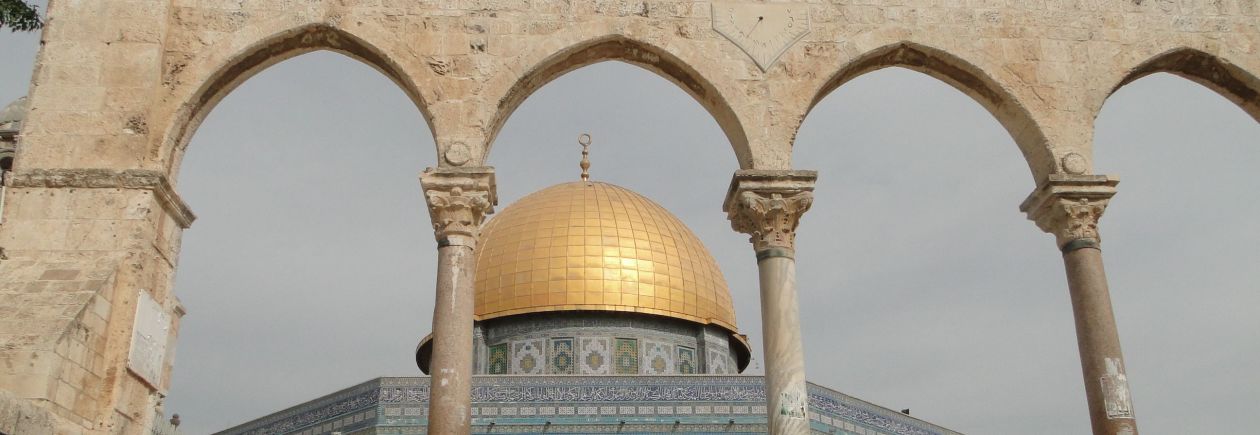The morning news reported that the Yarmouk Refugee Camp in Syria, which recently housed 150,000 Palestinian refugees, has been taken by ISIS in a brutal and bloody siege. Only 18,000 inhabitants remain: those who were too poor or too ill to flee during repeated attacks in this long Syrian war. Among them are thousands of children.
Yarmouk is a hellhole of unimaginable desperation.
Yarmouk is a hellhole of unimaginable desperation. With destroyed buildings and streets littered with bodies, cut off from food and water, people were dying daily even without this attack. Now, with its despicable brutality, ISIS is killing more.
The United Nations has described the situation as “beyond inhumane.”
Israeli archives
These refugees are descendants of the 750,000 Palestinians displaced by the founding of the Israeli state and the ensuing war with Arab nations. While we’ve been told they left so that Arab armies could attack, recently opened Israeli archives disprove this. According to current Israeli historians, massacres and mass expulsions by Jewish militias frightened many into fleeing until the war was over.
They were never allowed to return, and hundreds of their villages were destroyed.
They were never allowed to return, and hundreds of their villages were destroyed. An Israeli group called Zochrot is preserving the ruins as testament to the ethnic cleansing that occurred.
Syria and other countries built crude refugee camps to house the Palestinians. Three generations of families, many descended from highly educated professionals, artists and musicians, have languished in these desolate camps waiting to return to their homeland.
The United Nations has passed resolutions affirming their right under international law to return to their homes, a right no one can “give” them or take away. Israel has refused to allow them in, although anyone with one Jewish grandparent can move there and become an automatic citizen.
Expelled in 1967
Another 300,000 Palestinians were expelled in 1967, when Israel seized the West Bank and Gaza Strip. Ethnic displacement continues today. As illegal Jewish settlements expand, Christian and Muslim Palestinians are being forced out.
There have been Israeli attacks on churches and mosques, well poisonings, crop burnings, and vicious assaults on farmers tending their fields. Israeli soldiers burst into Palestinian homes in the middle of the night taking children from their beds and holding hundreds without charge in Israeli prisons.
Israelis get four times as much water as Palestinians. More than 25,000 Palestinian homes have been destroyed.
Meanwhile, refugee camps are overflowing. The refugees of Yarmouk should not be there. If U.N. resolutions had been enforced, these refugees would be back in their homes and living productive lives in a multi-ethnic setting.
Lived together
In Palestine before the 1940s, Jews, Christians and Muslims lived together, and can do so again once equal rights are restored. In one refugee camp I met a Muslim woman who was named for her mother’s Jewish neighbor before the war.
Recently 3,000 Christian Palestinians signed an urgent plea to the churches of the world to become informed and take action to end Israel’s occupation. They have recommended boycott, divestment and sanctions, which worked to end apartheid in South Africa. Several major denominations have embraced boycott of settlement products and/or divestment from companies that profit from Israel’s occupation.
Christians believe that when Christ arose, his Spirit entered the hearts of his followers and works through them to transform the world. As we go forth from Easter, ending Israel’s occupation and supporting the refugees’ right of return are good places for “Love’s redeeming work” to begin.
United Methodist resolutions
The General Conference of The United Methodist Church, the denomination’s highest-policy setting body, has approved several statements addressing the Israel/Palestine dilemma in the Book of Resolutions. Among them are the following (excerpted):
- #6111. Opposition to Israeli Settlements in Palestinian LandThe United Methodist Church opposes continued military occupation of the West Bank, Gaza, and East Jerusalem, the confiscation of Palestinian land and water resources, the destruction of Palestinian homes, the continued building of illegal Jewish settlements, and any vision of a “Greater Israel” that includes the occupied territories and the whole of Jerusalem and its surroundings. In our call for an end to the Israeli occupation we affirm the church’s commitment to nonviolent responses to the Israeli-Palestinian conflict, and acknowledge the need to hear the voices of all those — Muslim, Christian and Jewish — harmed by the conflict, including the Palestinian Christians as voiced in the Kairos Palestine document (Adopted 2004)
- #6112. United Nations Resolutions on the Israel-Palestine ConflictThe United Methodist Church calls upon Israel, the Palestinian National Authority, and all States to abide by and uphold UN resolutions, International Court of Justice rulings, and international law as the basis for just and lasting peace in Palestine/Israel; and … calls upon the United States, as a permanent member of the U.N. Security Council, to accept the authority of Security Council resolutions to refrain from vetoing resolutions, and abide by Security Council Resolutions 242 and 338, as well as all other relevant U.N. resolutions and International Court of Justice rulings, that provide a framework for bringing this conflict to a just and permanent end (Adopted 2000).
- #6137. Interfaith Advocacy in Support of Israel/Palestine PeaceIn order to promote justice and peace in the Holy Land, the 2012 United Methodist General Conference supports the efforts of existing or newly formed conference-wide and/or locally based United Methodist and/or interfaith or ecumenical committees, task forces, boards or agencies that are committed to engaging in ecumenical and interfaith dialogue leading to achieving common goals relating to Israel/Palestine. Such goals to include the recognition of a single universal standard of human rights that applies to all stakeholders and support for an end of military aid by any country to those parties in the conflict that commit human rights abuses (Adopted 2012).
